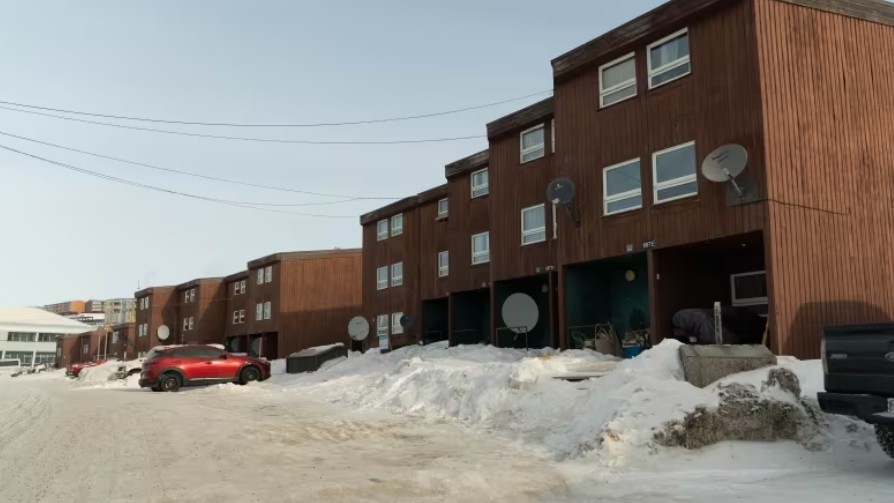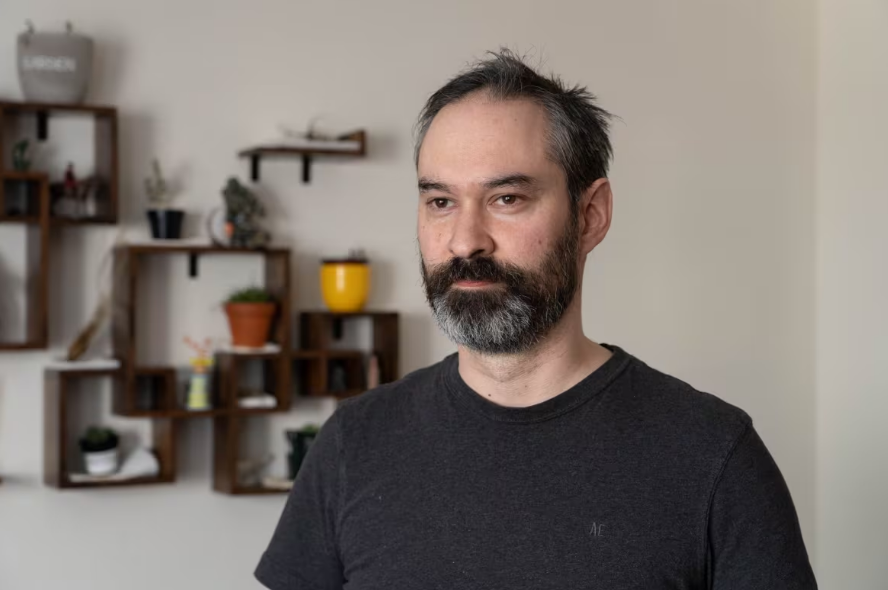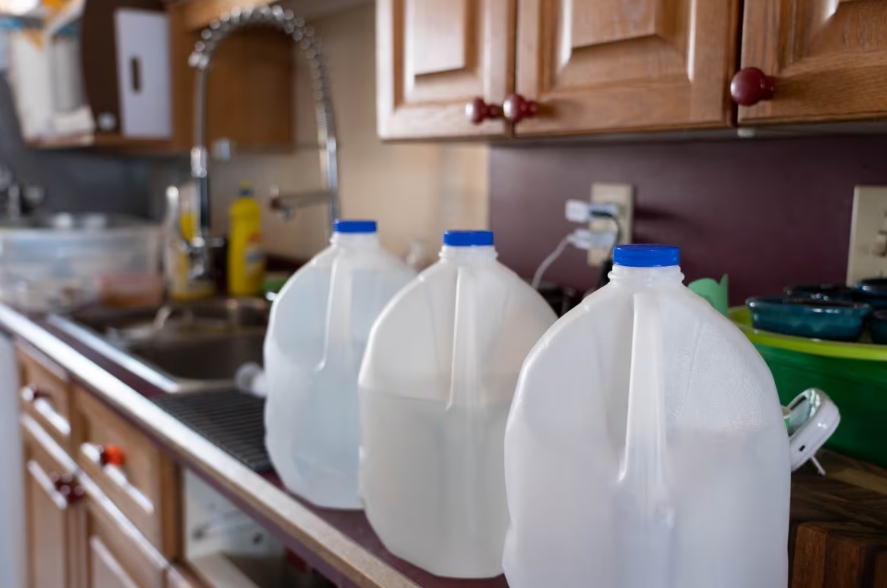Iqaluit condo residents without water or sewage services for weeks

Some people living in Iqaluit’s Brown Row condo units haven’t had water or sewage services for several weeks.
It was caused by heating issues and a city water shutdown that left some residents with frozen pipes during the coldest time of the year.
Jaban David, the Brown Row condo board’s president, said there is extensive damage to the condo units as a result.
“We have a couple of units that had sewage back up where there’s sewage leaking through the walls,” David said, sitting in his Brown Row unit.
“Most of the damage is hidden underneath the building … in floors or in walls,” he added.

David said he’s taken three weeks off work to deal with the situation and four owners have decided to stop paying condo fees because they aren’t getting services.
He also said some residents have been going to the Aquatic Centre to use the bathrooms and shower.
“It feels like half of the day was just spent dealing with the situation,” he said.
Water shutdown, fuel outages
David said the issue started after an emergency city water shutdown on Feb. 5, when residents’ cold water lines froze.
On Feb. 18, residents ran out of fuel overnight and the heat shut off as a result, David said. Something similar happened at the Qajuqturvik Community Food Centre in late February, causing major damage to the building’s pipes and kitchen.
At the time, Peter Mackey, the general manager of Uqsuq Corporation, which provides heating fuel to both Qajuqturvik and Brown Row, said some customers ran out of fuel in part because cold weather led to higher-than-normal fuel usage.
“The autofill program does not guarantee against a runout, as we are unable to monitor the fuel consumption for every building,” Mackey wrote about the food centre at the time.
David said he made an emergency call to Uqsuq, who delivered fuel the same day. David said that fuel only filled about half a tank and was only enough for 24 hours because of the extra fuel needed to recover from freezing.
The heat shut off again on Feb. 19, resulting in all water and sewer lines freezing. As things warmed up over the following days, David said he discovered cracks in pipes in several units.
“That’s when we started having leaks in units and everywhere,” he said.
Now, residents have water and sewage services back, while some only have cold water. Five out of 15 condo units are still without water or sewage because of cracked pipes, David said.
CBC made several attempts to speak to Mackey on Monday but was unable to reach him except via email.
“Uqsuq is not aware of any issue of fuel run out that may have contributed to the freeze up at Brown Row,” he said in a statement.
David also said Uqsuq had missed three scheduled fuel deliveries in February. Mackey said Uqsuq’s records show one fuel run-out for Brown Row between December and March.
Mackey said he could not share more information with CBC because it is not a member of the condo board.
Contractors wanted
David and some other condo owners have started doing the repair work themselves after contractors turned down the job because they were too busy with other emergency situations.
“I think there’s a lack of people in town who can deal with the situation when it’s on a large scale [like] this,” he said.
He also isn’t sure how long the water system in the buildings will take to repair.
“I haven’t found any contractors willing to do it,” he said. “We’ve been doing it ourselves because they’re not willing.”

He said some contractors have guessed the price to repair cracked sewage pipes will be $70,000 to $80,000 per unit and even more for new boilers and water lines.
“We’re going to have to do an assessment on owners to pay for the repair,” he said.
David said there have been issues in the buildings before and putting in claims in the past meant the premium rose sharply.
“Putting in an insurance claim, especially if you have to put in multiple, ends up in you not having insurance anymore,” he said.
Others in the same boat?
It’s possible more Iqaluit residents are in a similar situation.
City communications manager Kent Driscoll said in a statement that the city provided Aquatic Centre passes to “some residents” who did not get water immediately following the service interruption, but did not say how many.
Driscoll also said “units that have problems with their service pipes, and helping those people, is the role of the landlord or homeowner.” Driscoll said the city isn’t tracking how many people didn’t get water when the pipes were turned back on.
A report by Emma Tranter
Related stories from around the North:
Canada: Thawing permafrost in Canada’s Northwest Territories releasing acid that’s breaking down minerals: study, CBC News
Finland: Finland investigates oil leak risks from Baltic Sea shipwrecks, Yle News
Greenland: Greenland accedes to UN treaty against mercury pollution, Eye on the Arctic
Russia: Rosneft-sponsored study says eco-impact at Franz Josef Land is ‘insignificant’, The Independent Barents Observer
United States: Alaska remote diesel generators win exemption from pollution rule, Alaska Public Media



